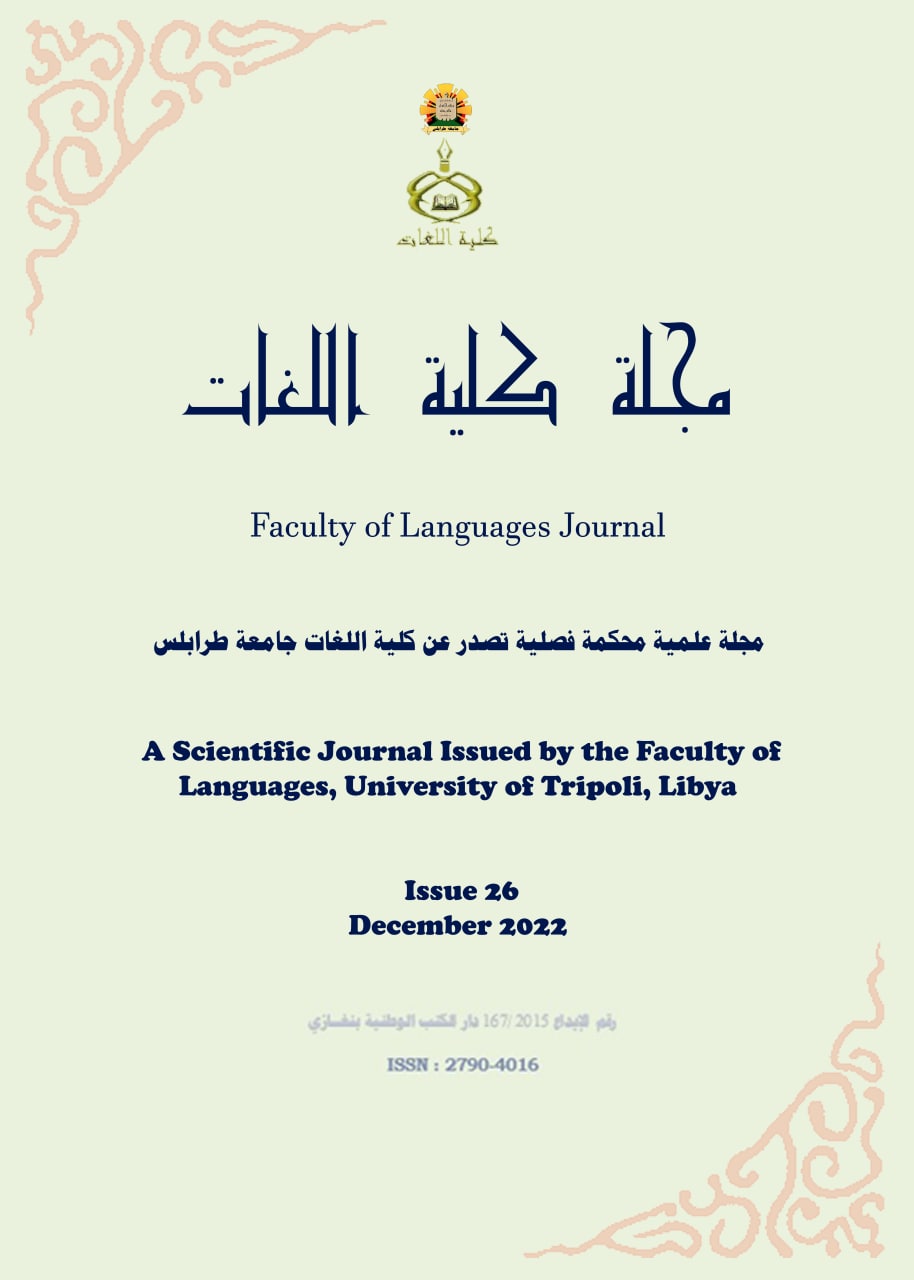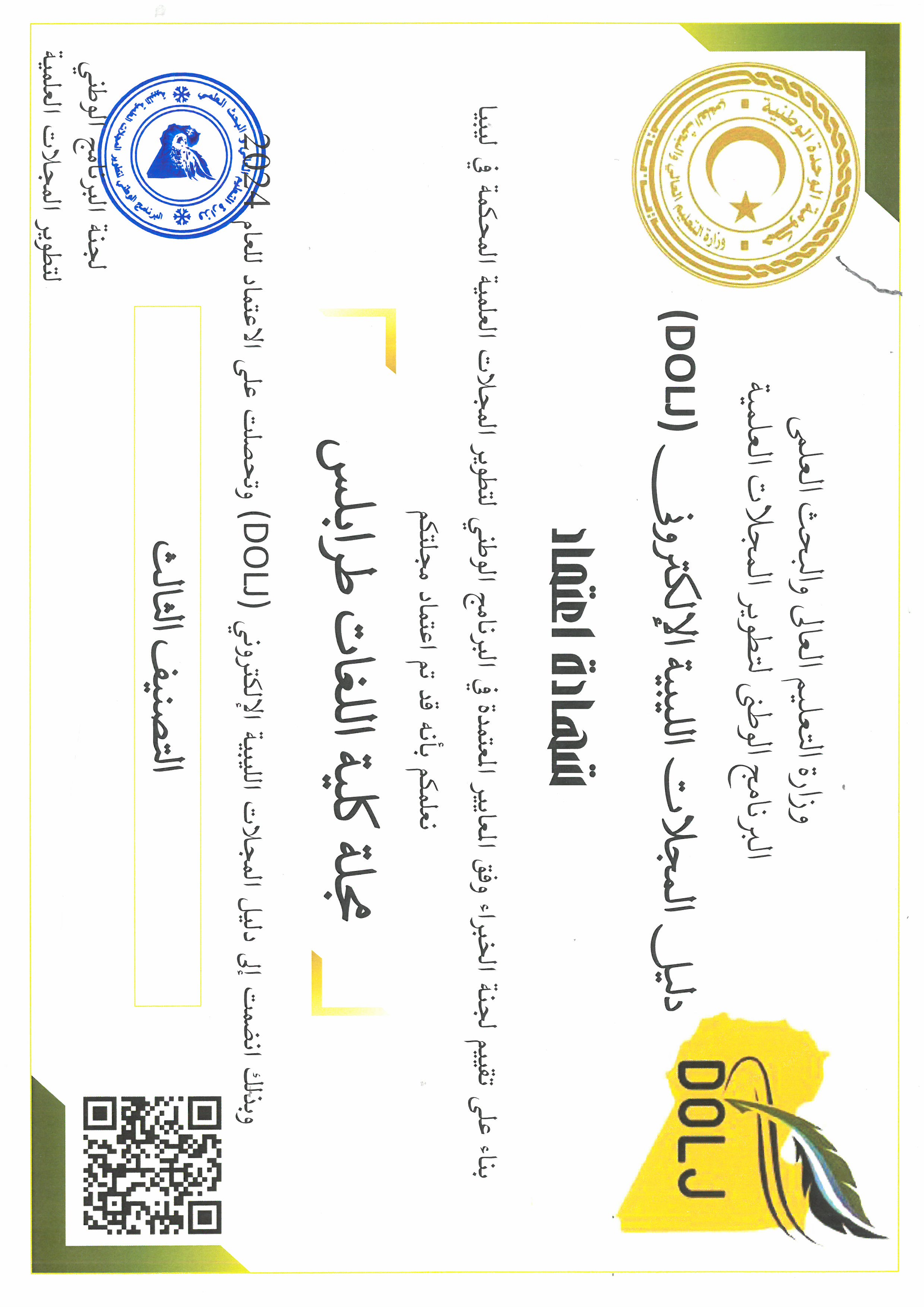الترجمة الأدبية باعتبارها تجربة ثقافية: نقل العناصر الحضارية في الترجمة العربية لرواية Il Gattopardo » الإيطالية
DOI:
https://doi.org/10.56592/flj.v1i26.252Keywords:
الترجمة الأدبية, العناصر الثقافية, الاختلاف الثقافيAbstract
is contribute starts from the question of how the cultural elements that appear in the literary texts are transferred from one language to another. The text is produced in a cultural environment with its own peculiarities related to its own worldview, its relation with the reality which are the result of specific experiences and history. All that puts the literary translator in front of a great challenge (in addition to other challenges he faces, which confirm that literary translation is not a mechanical process that transfers words from one language to another) makes him search for a solution through which the Other can reach the host bank. We will discuss this aspect through the study of the Arabic translation of the Italian novel “Il Gattopardo” by Giuseppe Tomasi di Lampedusa, realized by the Jordanian translator Issa Al-Naouri in 1973. This study, based on the method of the French theorist Antoine Berman, (1995 pp. 64-73) and which is based on Friedrich Schleiermacher’s idea (1768-1834), who asserts that the translator who wants to make the writer he translates and the reader of the target language dialogue should bring the reader to the writer, let us understand if the translator is looking for a way to make the world of the Other, the Italian, appears in its peculiarities. We get to the conclusion that the transfer of the cultural elements represents an obstacle that requires from the translator a big effort in order to bring the reader closer to the essence of the Other’s culture, which often remains hidden behind the meaning
 https://orcid.org/0009-0002-8251-5878
https://orcid.org/0009-0002-8251-5878






